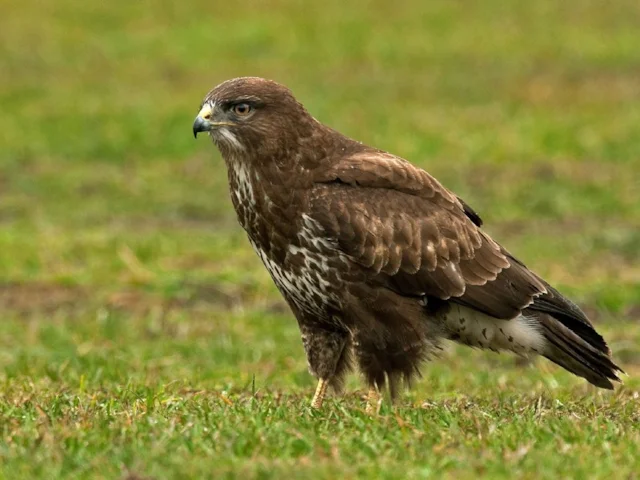Government answers petitioners: buzzards can be killed under licence
9090a73a-a68c-4828-93b6-e865dac4bc8c

The UK Government has responded to a petition against killing Common Buzzards which garnered nearly 12,000 signatures, saying it intends to allow Pheasant breeders to kill them.
The Government responded to the petition – entitled 'Suspend Natural England licence to kill buzzards' – this week, saying that Common "Buzzards are widespread in England and the issuing of control licences has no impact on their conservation status. This approach balances conservation of wildlife and supporting the rural economy.
"Buzzards are now widespread in England with, according to the British Trust for Ornithology, over 60,000 pairs in the UK. Issuing control licences has no impact on the conservation status of buzzards and this approach strikes a balance between conserving wildlife and supporting our rural economy."
Natural England issues can issue Wildlife Licences to prevent damage to agriculture, livestock and fisheries, and says it decides whether to grant a licence within the legal framework of the Wildlife and Countryside Act 1981.
NE also says that it is legally unable to refuse to grant a licence if all the appropriate criteria are met, but would not issue a licence for any activity that would adversely affect wildlife conservation.
The petition became a cause célèbre when NE issued a licence recently at the behest of an unnamed gamebird breeder ot breeders to permit the 'control' of up to 10 buzzards, in order to prevent them from predating Pheasant poults in rearing pens.
The petition is still way off the 100,000 signatures needed for the Petitions Committee to put it forward to Parliament for a debate.
The Government responded to the petition – entitled 'Suspend Natural England licence to kill buzzards' – this week, saying that Common "Buzzards are widespread in England and the issuing of control licences has no impact on their conservation status. This approach balances conservation of wildlife and supporting the rural economy.
"Buzzards are now widespread in England with, according to the British Trust for Ornithology, over 60,000 pairs in the UK. Issuing control licences has no impact on the conservation status of buzzards and this approach strikes a balance between conserving wildlife and supporting our rural economy."
Natural England issues can issue Wildlife Licences to prevent damage to agriculture, livestock and fisheries, and says it decides whether to grant a licence within the legal framework of the Wildlife and Countryside Act 1981.
NE also says that it is legally unable to refuse to grant a licence if all the appropriate criteria are met, but would not issue a licence for any activity that would adversely affect wildlife conservation.
The petition became a cause célèbre when NE issued a licence recently at the behest of an unnamed gamebird breeder ot breeders to permit the 'control' of up to 10 buzzards, in order to prevent them from predating Pheasant poults in rearing pens.
The petition is still way off the 100,000 signatures needed for the Petitions Committee to put it forward to Parliament for a debate.

